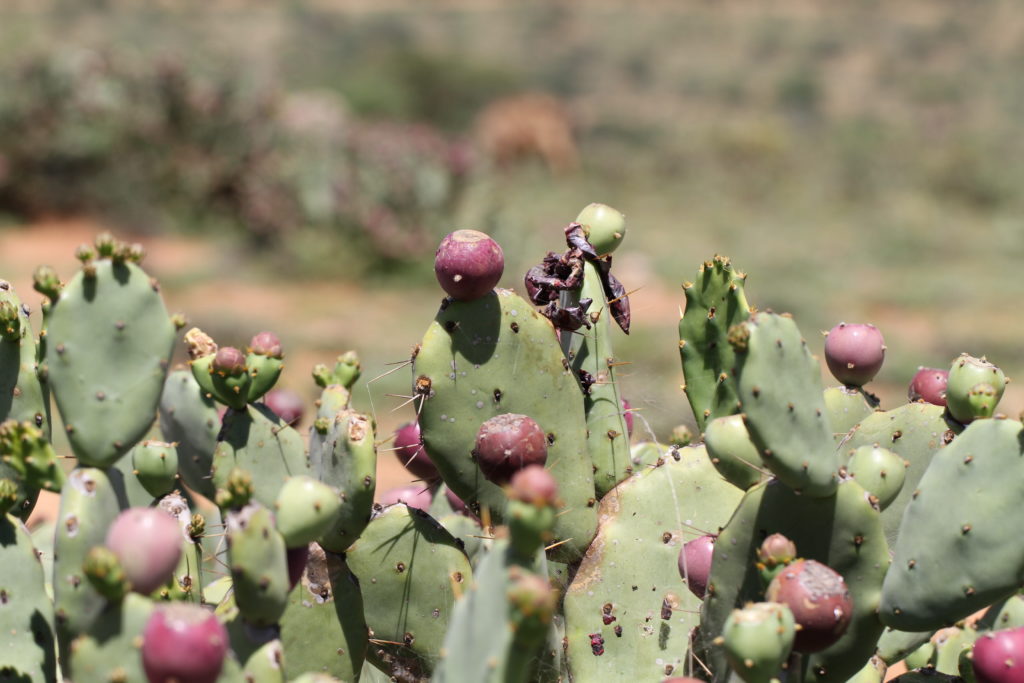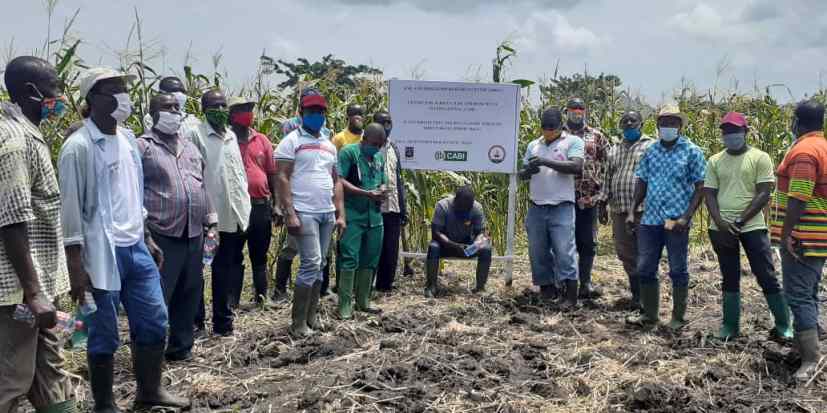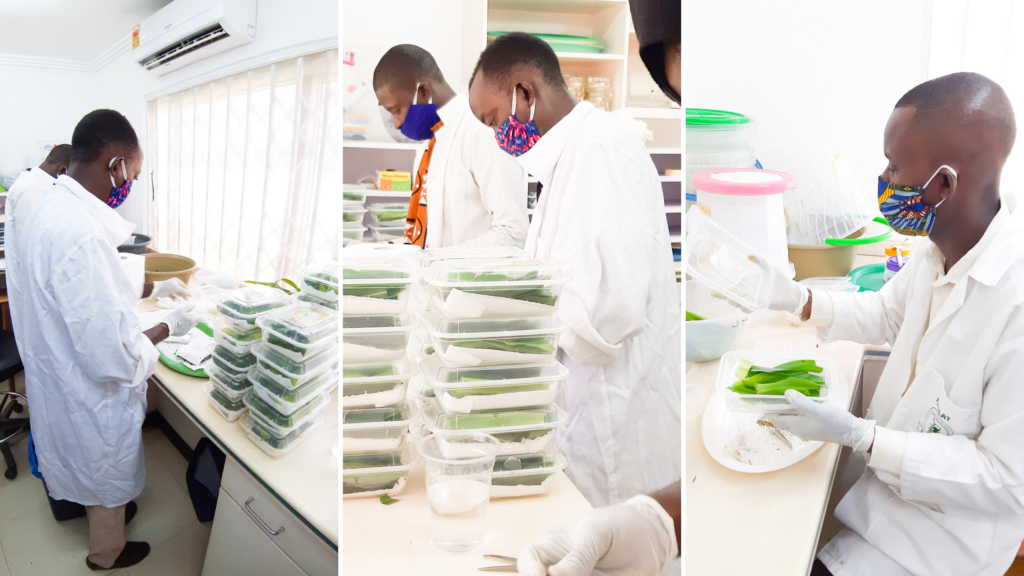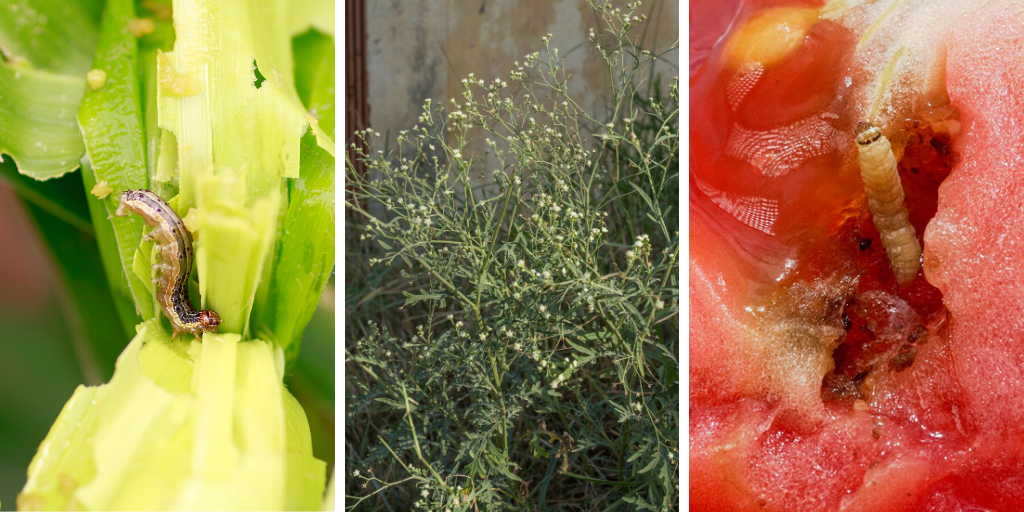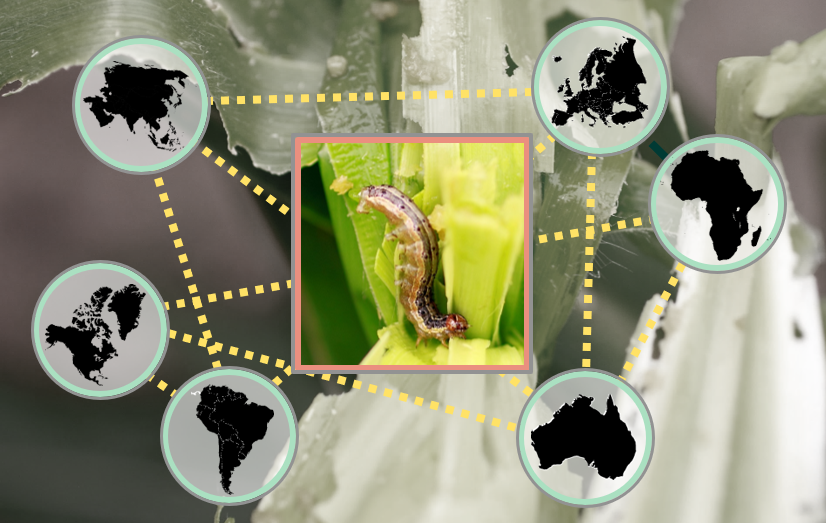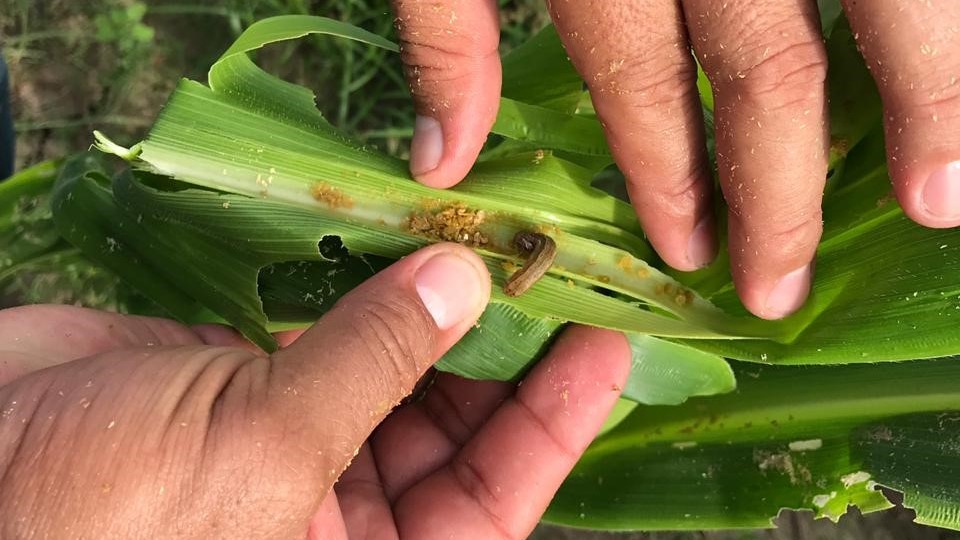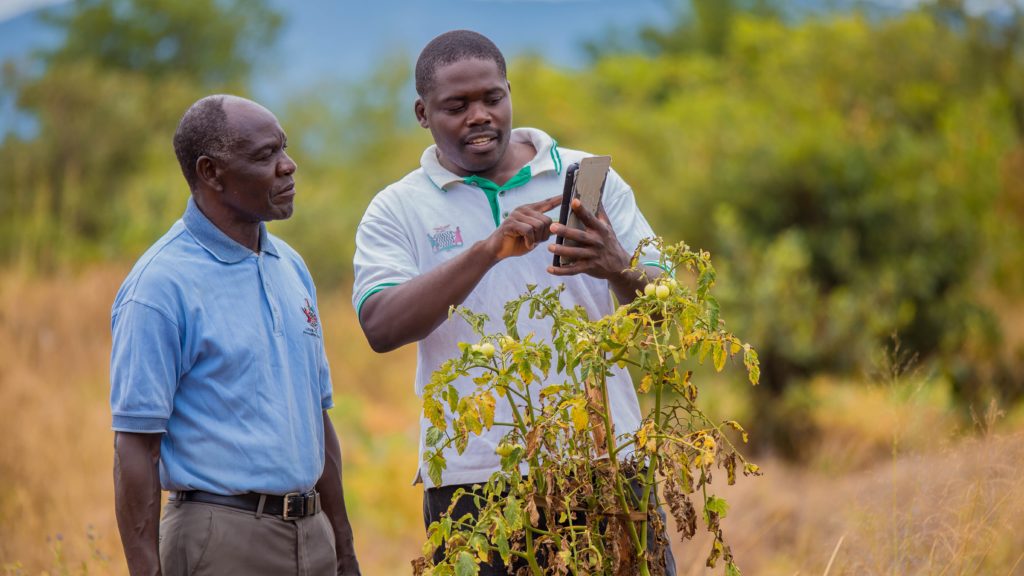Study brief explores outcomes and lessons learnt from fall armyworm management plan in Ghana
A team of CABI and Plant Protection and Regulatory Services Directorate (PPRSD) scientists have shared their expertise on invasive species and development communications and extension to publish a new CABI Study Brief looking at the outcomes and lessons learnt from the implementation of a fall armyworm management plan in Ghana.
Invasive Species Compendium use grows in 2020
In the first half of 2020, CABI’s Invasive Species Compendium (ISC) had over 1.5 million visits, around double the number for the same period in 2019. How much of this is down to the demand for high quality content and improvements that have been made to the site, and how much is down to people…
CABI refurbishes MoFA laboratory for biological control of invasive species in Ghana
Through its global Action on Invasives (AoI) programme, CABI has refurbished a laboratory housed by the Plant Protection and Regulatory Services Directorate of Ghana’s Ministry of Food and Agriculture (MoFA-PPRSD). The lab supports research efforts aimed at discovering and promoting locally practicable biological control solutions for managing invasive species in Ghana. The refurbishment consisted of…
Using online workshops to ensure the fight against invasive species continues in Pakistan
As the global COVID-19 pandemic continues, CABI is ensuring that efforts to combat invasive species are continuing. The CABI centre in Pakistan organized a one-day online workshop on the development of Pest Management Decision Guides (PMDGs) and Technical Briefs on the invasive pests: fall armyworm, parthenium weed, and Tuta absoluta.
Communication is key: CABI publishes framework for strategic communications during pest outbreaks
The invasion of a highly destructive plant pest can have a devastating effect on farmers’ crop production, natural ecosystems and economic trade. In Africa, where a large proportion of people live in rural areas and rely on subsistence agriculture, invasive species can cause severe damage and seriously impact food and nutritional security.
The future of fall armyworm research
As COVID-19 forces more and more people indoors, the challenges facing scientific research do not diminish. If anything, the sudden requirement to maintain a sensible distance between colleagues serves only to highlight the lack of resources currently available to facilitate remote working and collaboration in research circles.
Invasives Most Read 2019
As 2019 draws to a close, we have crunched the numbers and pulled together the year’s most read articles. Plus some firm favourites. Fall armyworm continues to be a popular topic for our readers and this year, blogs on biocontrol efforts to control the invasive caterpillar make the top 20. CABI’s Pest Risk Analysis tool…
Study finds endoparasitoid wasp can reduce fall armyworm leaf consumption rate by up to 89%
In a recently published study led by CABI, researchers assessed, under lab conditions, the effect of the endoparasitoid wasp, Coccygidium luteum on the leaf rate consumption of its host – fall armyworm larvae.


